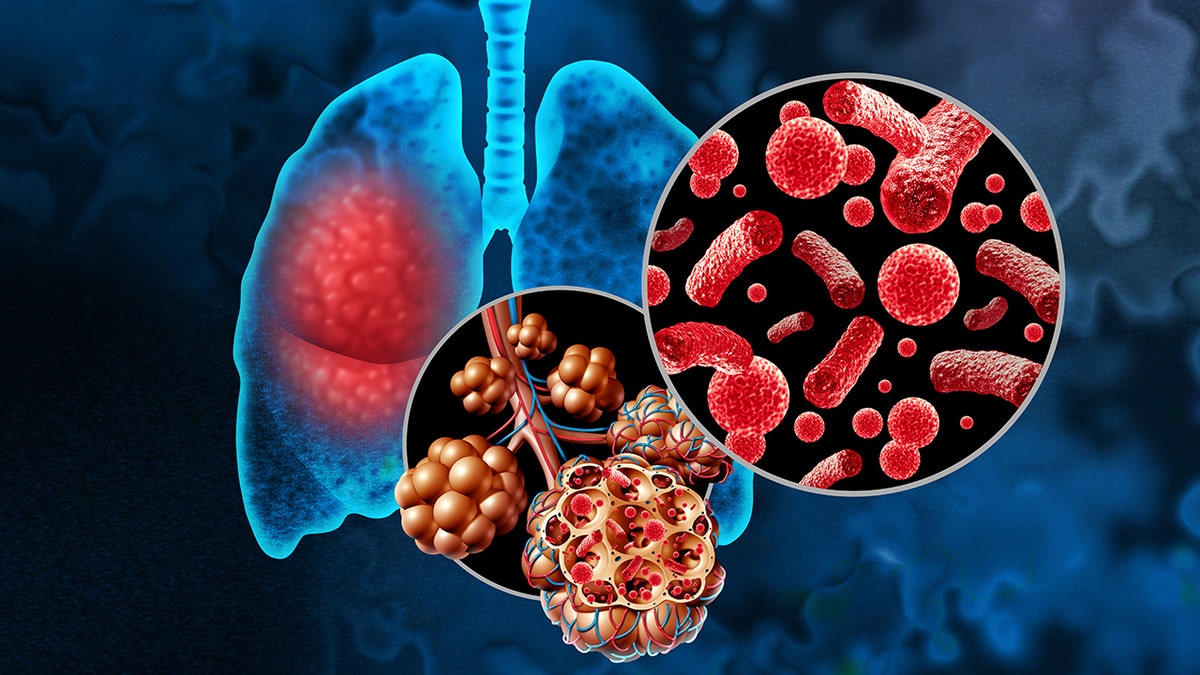After Diane Keaton’s pneumonia death, what to know about the respiratory virus

Actress Diane Keaton dead at 79
Actress Diane Keaton shot to fame after starring in ‘The Godfather’ and collaborated with Woody Allen in ‘Annie Hall.’
NEWYou can now listen to Fox News articles!
Diane Keaton’s death on Saturday has sparked reminders of the risks of pneumonia.
The iconic actress, director and producer was 79 when she succumbed to the respiratory infection in California.
Keaton’s family confirmed her cause of death to People magazine on Wednesday. Fox News Digital has reached out to her rep for comment.
LINGERING LUNG DISORDERS 5 YEARS POST-COVID: HERE’S WHAT TO KNOW
What is pneumonia?
Pneumonia is defined by Cleveland Clinic as an infection in the lungs caused by bacteria, viruses or fungi.
Diane Keaton’s death at the age of 79 has sparked reminders of the risks of pneumonia. (Getty Images)
This can cause the lung tissue to swell and create a buildup of fluid or pus in the lungs.
Dr. Marc Siegel, clinical professor of medicine at NYU Langone Health and Fox News’ senior medical analyst, previously said the risk of pneumonia depends on the underlying health conditions of the patient and the strength of the person’s immune system.
Bacterial vs. viral pneumonia
Most cases of community-acquired pneumonia are bacterial or viral.
Bacterial pneumonia is normally more severe than viral pneumonia, according to Cleveland Clinic.
CLICK HERE TO SIGN UP FOR OUR HEALTH NEWSLETTER
It can be caused by an infection of Streptococcus pneumoniae bacteria, also called pneumococcal disease.
Other bacteria that can cause the respiratory condition include mycoplasma pneumoniae, Haemophilus influenza, Chlamydia pneumoniae and Legionella (Legionnaires’ disease), per the above source.

Keaton’s family confirmed her cause of death on Wednesday. (Raymond Hall/GC Images)
“Pneumococcus is a major cause of pneumonia — it can be deadly,” Siegel said. “Invasive pneumococcal disease can have a death rate of up to 20% in adults.”
The risk of bacterial pneumonia increases with age and with chronic illness, the doctor added.
CLICK HERE TO GET THE FOX NEWS APP
Viral pneumonia can sometimes stem from viruses that include the flu, common cold, COVID-19 and respiratory syncytial virus (RSV), according to Cleveland Clinic.
This type of pneumonia typically improves on its own.

Viral pneumonia can sometimes stem from viruses that include the flu, common cold, COVID-19 and respiratory syncytial virus (RSV), according to Cleveland Clinic. (iStock)
In less common cases, some fungi (molds) or protozoa can cause pneumonia.
“The biggest concern is that it could spread into the bloodstream and cause sepsis, which is definitely life-threatening,” Siegel cautioned.
TEST YOURSELF WITH OUR LATEST LIFESTYLE QUIZ
Atypical pneumonias are caused by mycoplasma, legionella and kinds of chlamydia (not STD) and pertussis, the doctor added.
Treatment and prevention
Early diagnosis and treatment is key to recovery, especially in patients at risk, Siegel said.
High-risk groups include the very young, very old, immunocompromised people, those with chronic obstructive pulmonary disease (COPD) and people who smoke.
CLICK HERE FOR MORE HEALTH STORIES
For those over age 50, the Centers for Disease Control and Prevention recommends the pneumococcal vaccine.
“The effective version, known as Prevnar, can work against 20 different strains,” Siegel added.

